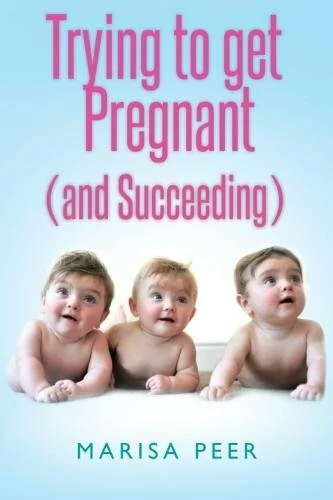What is she eating?
Our readers reveal their dietary habits
Every month, our dietitian Annemarie Aburrow analyses the diets of mums-to-be, to reveal their good points, not so good points and whether they meet nutritional requirements. This is a great opportunity for readers to have a unique insight into the dietary confessions of fellow mums-to-be. You might even discover some ideas to improve your own diet. If you would like your diet featured as part of this dietary analysis column, please get in touch!
Jess, 37, from Cardiff is currently expecting baby number 2. Jess suffered some morning sickness until week 12, and is now 30 weeks pregnant. She was overweight at the start of her pregnancy, and recently saw the midwife who expressed concern that she had already gained 12kg. This pregnancy is very different to her first, where she suffered from nausea and vomiting throughout, and gained minimal weight. Jess is a vegetarian but eats fish.
A day's diet in the life of Jess
Breakfast
Super berry granola with whole milk
Cup of coffee (with milk & sugar)
Mid-morning snacks
Fruit (e.g. grapes/apple/melon)
Small tin of mackerel in tomato sauce
Water (2 glasses)
Lunch
Cheese & salad baguette (with butter)
Packet of crisps
Can of diet coke or water
Mid-afternoon snack
2 chocolate biscuits
Cup of coffee (with milk & sugar)
Evening meal
Large portion of pasta with ready-made sauce, extra mushrooms & olives added
Salad
Creamy ice lolly
No-added-sugar squash or diet lemonade
Evening snack
Salty popcorn
Water
Dietary supplements
Pregnacare once a day
Iron tablets twice a day
Dietary analysis of Jess's diet
Computerised dietary analysis was performed on Jess's diet. The table below shows how Jess's diet compares with the requirements for key nutrients during pregnancy. Dietary analysis revealed the following:
-
Good protein intake, meaning that baby has enough protein for growth and development. Including a vegetarian protein source with the evening meal would give iron levels a boost. Ideas include lentils, kidney beans, chickpeas, Quorn or tofu.
-
Sugar intake is above recommended levels. Consider a lower sugar breakfast cereal - i's best to avoid cereals with added sugar (dried fruits in cereals is fine as this contains natural sugar; it's the added sugar that should be avoided). Checking the ingredients list will tell you if sugar has been added. Choosing breakfast cereals which are fortified with added iron and folic acid will help top up your micronutrients (you can find this information on the ingredients list or nutritional information).
-
Calorie intake is significantly higher than requirements, explaining the weight gain. Fat intake is also rather high. Healthier snacks will help decrease calorie intake - try fresh/tinned fruit, veggie sticks with hummus, or crackers with low fat cream cheese as snacks in place of less healthy snacks like biscuits, which often contain empty calories. Choosing lower fat dairy products, e.g. semi-skimmed milk instead of whole milk will also help. Introducing a diet yoghurt instead of the creamy ice lolly is a more healthy dessert option, and is lower in calories.
-
Daily salt intake was 8.4g, which is higher than the UK recommendation of 6g a day. Ready-made sauces contain lots of salt, as does salted popcorn. Homemade pasta sauces using simple ingredients like tinned tomatoes and herbs would be a better option. Plain popcorn is healthier than salted.
-
Currently eating 4 portions of fruits and vegetables a day with a good vitamin C intake – increasing to 5 portions a day would be even better.
-
Including oily fish (tinned mackerel) is great. Mackerel is a source of omega-3 oils, and is also high in calcium and iron. Oily fish should not be eaten more than twice a week, so an alternative healthy snack should be eaten on other days.
-
Great calcium intake, obtained from milk, cheese, mackerel and ice cream.
-
Current fluid intake looks a little low - consider including some extra fluid to improve hydration.
-
Keep an eye on caffeine intake - two cups of coffee and a can of diet coke contains too much caffeine for pregnancy. On days when a can of coke is included, it's best to stick to one cup of coffee.
-
Including pregnancy multi-vitamins is great - ensuring vitamin D and folic acid requirements are met.
Does her diet meet nutritional requirements for key nutrients?
| Nutrient | Requirement (RNI) for 3rd trimester of pregnancy | Jess's intake |
|---|---|---|
| Energy (kcal) | 2370 kcal (personalised requirement) | 2621 kcal |
| Protein | 57 g | 96 g |
| Folic acid | 300 mcg | 270 mcg from food, plus additional 400 mcg from pregnancy vitamin supplement |
| Vitamin C | 50 mg | 68 mg |
| Vitamin D | 10 mcg | 6.6 mcg from food, plus additional 10 mcg from pregnancy vitamin supplement |
| Vitamin A | 700 mcg | 675 mcg |
| Calcium | 700 mg | 1304 mg |
| Iron | 15 mg | 13.5 mg from food, plus iron supplements |
Our thanks go to Jess for letting us analyse her diet. If you want to know how Jess is getting on with her pregnancy, please feel free to visit her blog.
The information provided on this site is not meant to substitute for the advice of a qualified medical professional. Dietinpregnancy.co.uk neither assumes any legal liability nor makes any warranty or guarantee, either expressed or implied, regarding the completeness, accuracy, usefulness, or currency of this information. It is the responsibility of the reader to check for updates to the information contained on this site.
